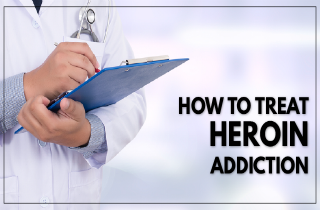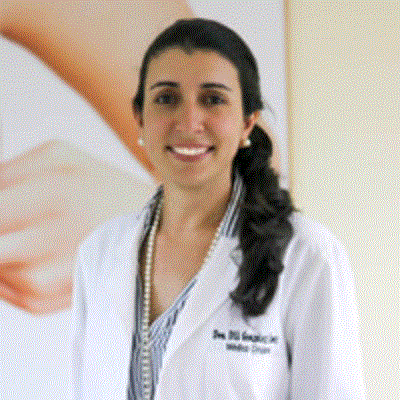Think you’re ADDICTED to heroin?
If you are looking for heroin addiction help…you are in the right place.
Addiction can be treated! In fact, it is a medical condition that responds well to medical treatment.
Here, we explore symptoms and signs of heroin addiction as well as review the pharmaceutical and behavioral treatments that can help you treat heroin addiction. Then, we invite your questions about heroin addiction and its treatment at the end.
—–
Need help quitting heroin use?
Helpline is available 24 hours a day, 7 days a week.
—–
What is heroin addiction, really?
REMEMBER THIS: Addiction is a chronic, relapsing brain disease that is characterized by compulsive drug seeking and use, despite harmful consequences.
It is not a person’s choice.
It is not a moral failing.
It can be treated!
Heroin (diamorphine) affects the body in such a way that it starts to change your brain chemistry. When heroin takes over your brain, you can no longer control your behavior, you cannot choose to just stop doing heroin…you are not You. When compulsion takes over, even though the pleasurable heroin effects subside – the memory of the desired effects and your need to recreate them still persist. It’s as though your brain’s normal machinery of motivation is no longer functioning.
Each heroin problem is unique
The nature of heroin addiction is both physical and psychological. In order to treat the addiction effectively, you have to consider the rehabilitation needs of both, your body and mind.
It is also important to note that everyone who experiences heroin addiction is different. Therefore, treatment will be different for each person. This is because the main causes of heroin addiction are attributed to certain genetic and biological factors…which are highly individual factors. However, certain social factors can also influence whether a person is prone to addiction or not. These lifestyle factors may include:
- Having a parent with a history of addiction.
- Severe trauma or injury.
- Exposure to substance abuse at a young age.
- Mental health conditions, especially mood disorders such as chronic anxiety and depression.
- Psychological trauma, including loss of a loved one or chronic loneliness.
So, just as there can be a unique mix of multiple causes for addiction – there has to be a variety of approaches that can successfully treat addiction in all individual cases. Good heroin addiction treatment programs are tailored to each patient, and there is something that works for everyone.
Treatment approaches that work
The main two (2) modalities used in heroin addiction rehab are pharmacological therapy and behavioral therapy. A combination of the two can help you optimize rehab according to your needs, and offers the best possible plan for recovery and long lasting health.
Medications for heroin addiction treatment – Opiate substitution therapy can help you by providing baseline opiate effects with less harmful consequences to your overall health. Popular treatments mainly include two well-known medications:
- Methadone
- Buprenorphine
Other medications that can help your recovery by treating heroin withdrawal symptoms include naltrexone, clonidine, Imodium or over-the-counter medicines that can lessen any flu-like symptoms as they occur.
Behavioral treatments for heroin addiction – Psychotherapy and behavioral therapies are helpful after you have been detoxed from the physical presence of heroin. Therapies can include one-on-one sessions, group therapy, and family therapy. These modalities, such as Cognitive Behavioral Therapy (CBT), treat the emotional and psychological underpinnings of addiction and help you understand, monitor, and control the compulsion to abuse heroin. They also teach you of ways to rebuild your future and continue to living a productive life without heroin.
Who can help you get sober?
You are not alone in this! There are several paths to obtaining the help you desperately need. Listed below are several sources of heroin addiction treatment. Please feel free to comment or add to this list at the end of the article.
1. Heroin addiction treatment centers
Recovering from heroin addiction may be one of the hardest things you’ll do in your life. Heroin alters the brain chemistry so much that when the drug is completely out of your system you will still have a hard time maintaining a stable mood and sleep patterns. Many will find that even small everyday problems can trigger the need to take heroin.
Inpatient treatments centers are highly recommended for people who are surrounded by triggers in their home environment. In addition to inpatient treatment, you can also seek help in an outpatient heroin treatment center. These non-residential treatment programs, however, are best recommended for people who have successfully completed their inpatient addiction treatment program, but still need several counseling sessions a month in order to maintain recovery.
—–
Need more heroin rehab information?
Call us!
ANYTIME: Day or Night.
Heroin Helpline professionals are here to help you find the right treatment for your needs!
—–
2. Heroin detox clinics
Heroin detox clinics treat the physical withdrawal of heroin. They can provide a safe and drug-free surrounding in which to recovery. Another important aspect is that you are monitored and offered medical and mental support during your withdrawal process. This helps decrease your likelihood of relapse in the first few days of recovery before you seek other forms of treatment. A detox clinic can also provide you with medications and supervision to make the process as comfortable as possible.
3. Clinical psychologists and psychiatrists
Psychiatrists and psychologists work with you in a group or individually. These addiction specialists have an vast knowledge of how addiction works and which behavioral treatment(s) are best for each person.
Psychiatrists are medical doctors who can diagnose any underlying mental issues that may be affecting you along with addiction (dual diagnosis) and help you manage both conditions at the same time.
Psychologists provide talk therapy and provide you with the behavioral modification tools you need to stay away from heroin.
4. Heroin addiction support groups
Support groups are highly effective in treating heroin addiction. Sometimes, if you’ve been in trouble with the law, these groups are mandated by probation or parole.
Support groups for heroin addiction provide an environment where you can talk openly with other people who are facing the same problems as you…so you can know you are never alone in your shoes. You can attend 12-step programs such as Alcoholics Anonymous (AA) or look into more secular groups such as SMART Recovery or Rational Recovery. Also, spiritual and community organizations may provide their own support groups that you can attend.
Any of theses support groups may work. It is important to find where you will fit and feel most comfortable.
5. Licensed clinical social workers
These are social workers who work in the field of mental health and substance abuse. Licensed clinical social workers are trained counselors and can reach out into the community, help you get on your feet, and refer you to other social services. Licensed clinical social workers can be in charge of support groups and offer classes that aid heroin addiction recovery. If heroin use has gotten you in trouble with the law, a licensed clinical social worker can help you navigate the legal world and stay out of trouble.
6. Your primary physician
Do you have a regular physician? If so, talk to them. They can help you find heroin addiction treatment resources in your living area that are covered by your insurance. Your doctor can also recommend therapies, or prescribe medications necessary to treat withdrawal symptoms that will arise as you are going through heroin detox.
7. A trusted religious or spiritual leader
In general, trusted spiritual leaders increase positive recovery and help influence long lasting sobriety. If there is someone out there in your religious or spiritual community that you trust, seek them out. They are there for your guidance and many times host their own support groups or know of therapists that can help.
DSM signs of heroin addiction
If you suspect that you or a loved one have a problem with heroin use…chances are you are right.
If you feel like you need heroin in order to function – not only mentally, but physically – this is an indication that you may be addicted to heroin. The following criteria are outlined by the Diagnostic and Statistical Manual of Mental Disorders (DSM) and used by doctors and addiction professionals for the diagnosis of an addictive disorder.
- Acting secretive and aloof so as to hide use of heroin.
- Spending a lot of time obtaining, using, or recovering from the use of heroin.
- Wanting to cut down or stop using heroin but never succeeding to stay sober.
- Drug seeking behavior.
- Giving up important social, occupational or recreational activities because of use.
- Engaging in illegal behavior to get heroin.
- Negative consequences on social relationships, work, and financial stability due to heroin use.
- Taking heroin despite awareness of negative consequences.
- Needing more and more heroin to feel the desired effects (tolerance).
- Taking heroin to avoid withdrawal symptoms.
- Withdrawing from family and friends.
In addition to looking for these tell-tale sighs of addiction, the DSM also outlines the number of criteria when diagnosing a heroin drug use disorder.
- 2-3 met criteria indicate a mild disorder
- 4-5 met criteria indicate a moderate disorder
- >6 met criteria indicate a severe disorder
Got any questions?
Heroin is a powerful drug that can quickly lead to addiction. If you are ready for a change – you have a long journey ahead to cut heroin out of your life once and for all. And, although it may not be easy, recovery is always worth it!
Do you still have questions about treating heroin addiction? Please share your questions and experiences about heroin addiction and treatment in the comments section below. We always try to respond to your questions personally and promptly.










Related Posts